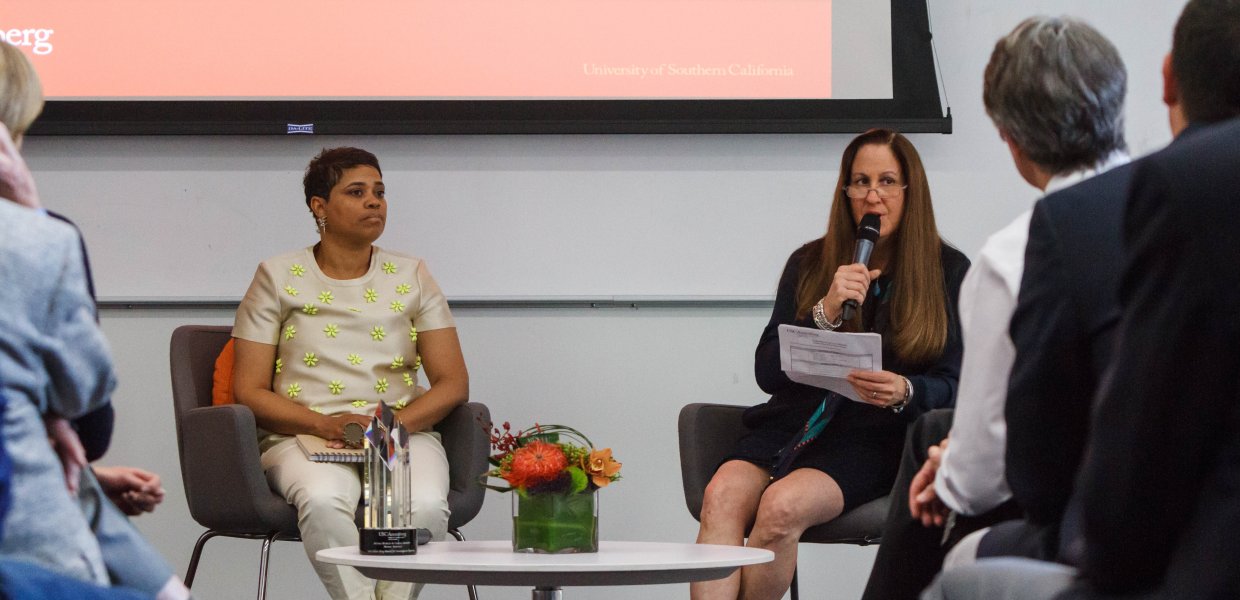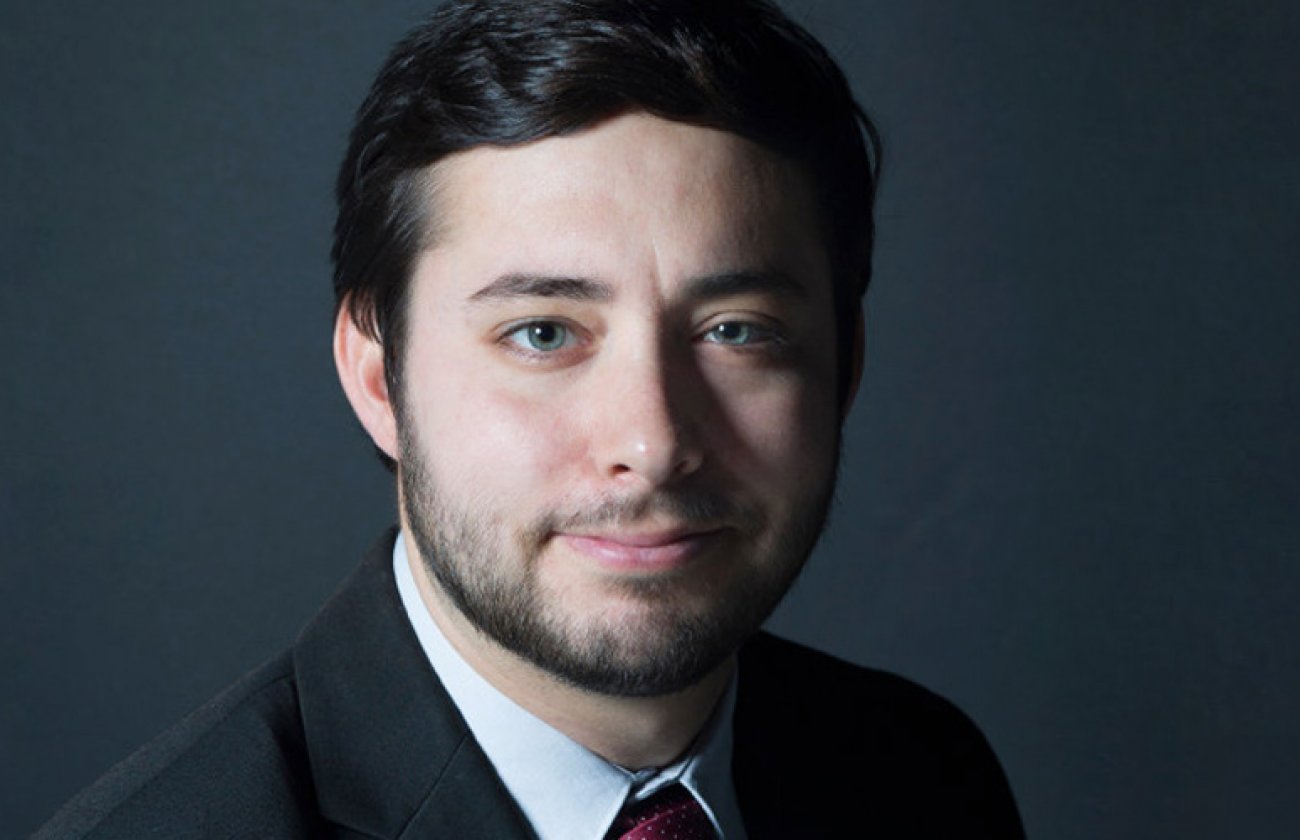Two Miami Herald reporters, who examined six years worth of child deaths in the state of Florida, were honored with the 2015 Selden Ring Award for Investigative Reporting for a project that married the rigors of investigative reporting and the grace of narrative storytelling on April 10. About 60 audience members were in attendance in Wallis Annenberg Hall as reporters Carol Marbin Miller and Audra D.S. Burch discussed their experiences writing “Innocents Lost” — a chronicle of 477 deaths of children whose families had been known by Florida child welfare authorities. The project drew on records from the state Department of Children and Families, other state agencies and law enforcement — as well as interviews with police, prosecutors, teachers, doctors, relatives, family friends, child welfare administrators, children’s advocates, social workers, judges and others. The Herald filed three lawsuits, two of them successful, in their pursuit of the records.
The $35,000 annual Selden Ring Award, which has been presented for the past 26 years by the School of Journalism at USC Annenberg, honors the year’s outstanding work in investigative journalism that led to direct results.

“The series promoted sweeping reforms that bolstered child protections,” Willow Bay, director of the School of Journalism School at USC Annenberg, said. “Well, without question your work gained the attention of the state’s lawmakers and led to the most significant overhaul of the child welfare laws in the state’s history, including a revised policy that explicitly put the welfare of children first along with two criminal indictments…”
Besides profiles on every child, the “Innocents Lost” project includes a searchable database of the children — now 534 of them — who have died of abuse or neglect since Jan. 1, 2008.
The 2015 Selden Ring panel included: Dean Baquet, executive editor of The New York Times; Marc Duvoisin, managing editor of the Los Angeles Times; Robin Fields, managing editor of ProPublica; Brant Houston, professor and Knight Chair of Investigative Reporting at the University of Illinois Urbana-Champaign’s College of Media; Mark Katches, editor of The Oregonian and vice president of Oregonian Media Group; Kevin Merida, managing editor of The Washington Post; and Megan Twohey, a reporter at Reuters.

“For the students in the room, you have to do that when you think your story is done and you’re madly in love with it and every turn of phrase just makes you tingle, go back and do it all over again,” Marbin Miller said.
The Miami Herald’s project had an immediate, sweeping effect. Within three months of its launch, Florida lawmakers unanimously passed legislation that affected almost every facet of child protection policy. The law also assigned almost $50 million in additional funds for child protection, and Gov. Rick Scott has proposed allocating another $80 million next year. USC Annenberg students who attended the event said they learned a lot from the two Miami Herald reporters.
Tanya Mardirossian, a USC Annenberg junior majoring in print and digital journalism, said she’s interested in going into the entertainment field as a journalist, where there are often investigative stories to cover.
“It’s always useful to hear other peoples’ stories just because as a student … I think you can learn from other peoples’ tactics and strategies and their tips are welcome,” Mardirossian said.
The Selden Ring Award for Investigative Reporting was established in 1989 by the late Selden Ring, a Southern California business leader and philanthropist. He established the award to honor journalists whose investigative reporting informed the public about major problems or corruption in society and yielded concrete results. The award continues in his name thanks to the generous support of the Ring Foundation.
The Selden Ring Award for Investigative Reporting: A Look Back
For the past 25 years, USC Annenberg has honored remarkable work in investigative journalism with the Selden Ring Award for Investigative Reporting. A $35,000 prize is presented annually to reporters whose work effected change. In anticipation of the 2015 winner announcement, we took a look back at the stories that have all shared the prestigious distinction.
The Miami Herald's "Innocents Lost" Project Wins USC Annenberg's 2015 Selden Ring Award





